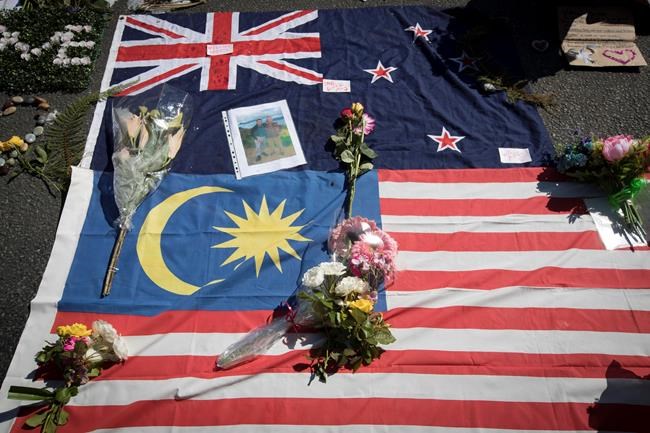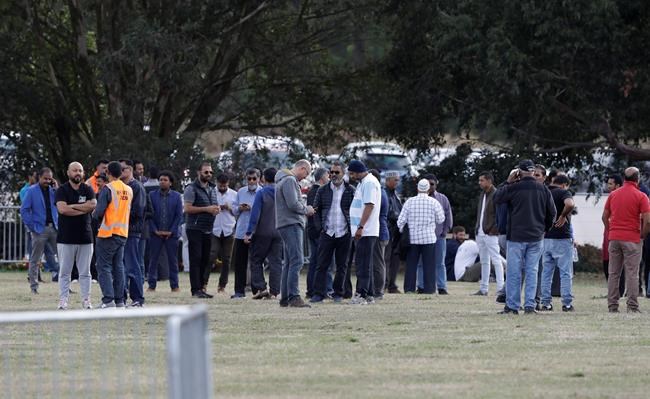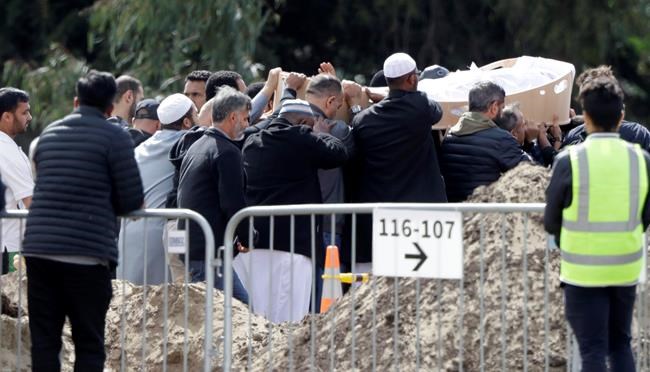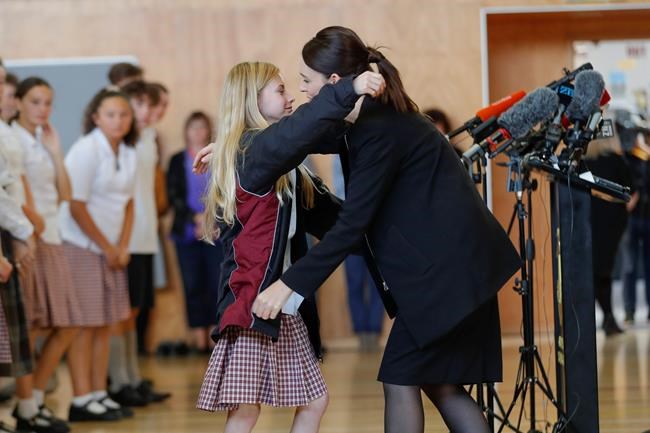Father and son who fled Syria are buried in New Zealand
Advertisement
Read this article for free:
or
Already have an account? Log in here »
To continue reading, please subscribe:
Monthly Digital Subscription
$0 for the first 4 weeks*
- Enjoy unlimited reading on winnipegfreepress.com
- Read the E-Edition, our digital replica newspaper
- Access News Break, our award-winning app
- Play interactive puzzles
*No charge for 4 weeks then price increases to the regular rate of $19.00 plus GST every four weeks. Offer available to new and qualified returning subscribers only. Cancel any time.
Monthly Digital Subscription
$4.75/week*
- Enjoy unlimited reading on winnipegfreepress.com
- Read the E-Edition, our digital replica newspaper
- Access News Break, our award-winning app
- Play interactive puzzles
*Billed as $19 plus GST every four weeks. Cancel any time.
To continue reading, please subscribe:
Add Free Press access to your Brandon Sun subscription for only an additional
$1 for the first 4 weeks*
*Your next subscription payment will increase by $1.00 and you will be charged $16.99 plus GST for four weeks. After four weeks, your payment will increase to $23.99 plus GST every four weeks.
Read unlimited articles for free today:
or
Already have an account? Log in here »
Hey there, time traveller!
This article was published 19/03/2019 (2463 days ago), so information in it may no longer be current.
CHRISTCHURCH, New Zealand – A father and son who fled the civil war in Syria for “the safest country in the world” were buried before hundreds of mourners Wednesday, the first funerals for victims of shootings at two mosques in New Zealand that horrified a nation known for being welcoming and diverse.
The funerals of Khalid Mustafa, 44, and Hamza Mustafa, 15, came five days after a white supremacist methodically gunned down 50 worshippers at two mosques in Christchurch — a massacre that he broadcast live on Facebook.
Hamza’s high school principal described the student as compassionate and hard-working, and said he was an excellent horse rider who aspired to be a veterinarian.

Those present included Hamza’s younger brother, 13-year-old Zaed, who was wounded in an arm and a leg. The boy tried to stand during the ceremony but had to sit back into his wheelchair, one mourner said.
“We tried to not shake his hand, and not touch his hand or his foot but he refused, he wanted to shake everybody’s hand, he wanted to show everyone that he appreciated them. And that’s amazing,” said Jamil El-Biza, who travelled from Australia to attend the funeral.
The Mustafas had moved to New Zealand last year, after spending six years as refugees in Jordan. Mustafa’s wife, Salwa, told Radio New Zealand that when the family asked about New Zealand they were told “it’s the safest country in the world, the most wonderful country you can go … you will start a very wonderful life there.”
She added: “But it wasn’t.”
Families of those killed had been anxiously awaiting word on when they could bury their loved ones. Police Commissioner Mike Bush said police have now formally identified and released the remains of 21 of those killed. Islamic tradition calls for bodies to be cleansed and buried as soon as possible.

The burials began shortly after Prime Minister Jacinda Ardern renewed her call for people to speak of the victims rather than the man who killed them.
Ardern’s plea against giving him notoriety followed the accused gunman’s move to represent himself in court, raising concerns he would attempt to use the trial as a platform for airing his racist views.
During a visit Wednesday to the high school Hamza and another victim attended, Ardern revisited that thought and asked students not to say the attacker’s name or dwell on him.
“Look after one another, but also let New Zealand be a place where there is no tolerance for racism,” she told students at Cashmere High School. “That’s something we can all do.”
Another Cashmere student, 14-year-old Sayyad Milne, also died in the attack.

About 30 people wounded in the attacks remained hospitalized as of Tuesday evening. About 10 of them were in critical condition, including a 4-year-old girl.
Australian Brenton Harrison Tarrant, 28, has been charged with murder and is next scheduled to appear in court on April 5. Police have said they are certain Tarrant was the only gunman but are still investigating whether he had support from others.
Ardern previously has said reforms of New Zealand’s gun laws would be announced next week and she said an inquiry would be convened to look into the intelligence and security services’ failures to detect the risk from the attacker or his plans.
New Zealand’s international spy agency, the Government Communications Security Bureau, confirmed it had not received any relevant information or intelligence before the shootings.
Sheik Taj El-Din Hilaly, of Sydney, travelled to Christchurch to attend or lead some of the funerals. Through a translator, he said he felt compelled to support the grieving. A nationwide lockdown on mosques was imposed until Monday, which Hilaly said had upset Muslims whom he had visited in Auckland. Police continue to guard mosques across the country.

Residents of this close-knit city have created makeshift memorials near the two targeted mosques and at the botanical gardens, where a mountain of flowers has grown by the day.
Janna Ezat, whose son, Hussein Al-Umari, was killed in the Al Noor mosque, visited the memorial at the gardens and became overwhelmed by the outpouring of love. She knelt amid the flowers and wept, grabbing at daisies and lilies as though she might find her boy in them.
Ezat is comforted by reports that Hussein confronted the killer, charging at him after surviving the first spray of bullets.
“I’m very happy. I’m wearing white. We normally wear black,” she said. “But he is a hero and I am proud of him.”
___

Associated Press writers Stephen Wright and Steve McMorran contributed.




